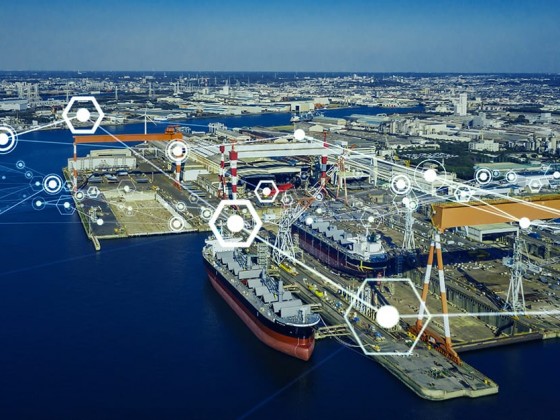by | Norsam Tasli Mohd Razali, Sri Widias Tuti Asnam Rajo Intan
norsamtasli@might.org.my, sriwidias@might.org.my
Creating Leaders of Tomorrow
The youth of today are not just the leaders of tomorrow; they are the architects of our future. This statement underscores the importance of recognising the active role that young people play in shaping the world we live in. It also emphasises that youth are not passive recipients of insights and experiences, but are active contributors to the present and future of our societies. Knowing the importance of the young generation as leaders of tomorrow, a critical question we must ask ourselves, is whether we are providing them with the right tools, guidance and opportunities to harness their leadership potential to the fullest.
Effective communication, global impact ideas and adoption of innovation technology
All over the world, we can see young leaders making their presence felt and voices heard, to inspire the world. For instance, Greta Thunberg, the Swedish environmental activist, started the “Fridays for Future” movement at the age of 15. Her strong dedication to address climate change has inspired millions of young people worldwide to act against the climate crisis. In education, Malala Yousafzai, an advocate for girls’ education, defied threats from the Taliban to speak out for the right to education. Her relentless advocacy led to her becoming the youngest-ever Nobel Prize laureate. While in entrepreneurship, Mark Zuckerberg, co-founder of Facebook, started the social media giant in his Harvard dorm room at the age of 19. Facebook has since transformed the way the world connects and communicates.
So, what can be learned from these three amazing icons? All of them can communicate their idea effectively, targeting global impact and taking advantage of digital technologies, such as social media, as platforms for spreading their messages. Each of them possesses excellent communication skills which enables them to articulate their message in a way that resonates with people, whether it is through speeches, writing or social media platforms – with each of their actions and advocacies creating global impact. For example, Malala’s advocacy for girls’ education has reverberated worldwide. Greta’s climate strikes inspired millions of students globally to join her cause. Mark’s creation of Facebook revolutionised how people communicate globally. They all harnessed the power of technology to amplify their messages to reach a wider audience. Malala and Greta used social media to spread their messages and connect with supporters, while Mark’s entire career is built around technological innovation.
Being on the right track
Likewise, for Malaysians to prepare their young leaders, these three components – effective communication, focus on global impact ideas and enhanced utilisation of digital technology – should be included. In Malaysia, youth can voice their rights and viewpoints to change the Malaysian ecosystem. A famous example is the Undi 18 Campaign, led by youth activists, successfully advocated for the lowering of the voting age in Malaysia from 21 to 18. It aimed to empower young Malaysians to have a say in the country’s political future. Therefore, it is crucial to have effective communication as a tool to spread ideas and messages. Investing in youth development is a smart move and empowering them with the right skills will change the landscape of Malaysia’s future.
In conjunction with that, the Government of Malaysia’s Budget 2023 has allocated funding for a range of youth development initiatives, including education, training, entrepreneurship, and social development. This includes a RM500 million allocation for the National Digital Skills Programme, aimed at upskilling young Malaysians in digital technologies and increasing their employability in the digital economy. There is also a RM150 million allocation for the Youth Entrepreneurship Programme, aimed at promoting entrepreneurship among young people and supporting their start-up ventures. These initiative examples indicate that Malaysia is on the right track for youth development especially in creating effective communication, pushing the youth to produce global impact ideas through entrepreneurship programmes and improving skills in digital technology towards a digital economy.
Crucial Challenges in Nurturing Malaysia’s Future Leaders
The future in Malaysia is fraught with distinctive issues and challenges that require thoughtful consideration. These challenges range from harnessing the potential of a multicultural society to cultivating the power of digital innovation, and these pertinent challenges underscore the vital importance of preparing our future leaders.
- In July 2023, Malaysia’s population composition stood at 70.1per cent Bumiputera, 22.6 per cent ethnic Chinese, 6.6 per cent ethnic Indians, and 0.7per cent from other ethnicities. In light of this diverse makeup, Future leaders must prioritise inclusivity and diversity, fostering a work environment that genuinely values multitude of perspectives and backgrounds
- According to Credit Counselling and Debt Management Agency, in 2022, out of 382,761 consumers that had participated in their debt management programme, 210,409 or 55.1 per cent were between the ages of 20 and 40. It is worrying that so many young people are facing serious financial problems, and need assistance and support to help them address their debt situation. Equipping the youth in Malaysia with financial literacy is not only a matter of personal empowerment but also a key contributor to the nation’s economic growth and stability.
- Fostering ethical leadership is vital to instill transparency, trust and accountability within organisations. Upcoming leaders must adeptly handle ethical challenges. Transparency International’s Corruption Perceptions Index, which ranked Malaysia 61st out of 180 countries in 2022, underscores the need for enhanced efforts to improve the perception of corruption within the nation
- Unequal access to digital infrastructure and technology can marginalise certain segments of the youth population, limiting their ability to engage in innovative practices and leverage digital platforms. The Internet penetration rate in Malaysia as of 2022 was approximately 96.8 per cent, according to the Malaysian Communications and Multimedia Commission.
Conclusion
As we gaze into the future, it becomes increasingly evident that the leaders of tomorrow will navigate a landscape vastly different from today. The rapid technology evolution, shifting global dynamics, and societal changes demand a new paradigm of leadership. By equipping our young ones with the right skills, we are developing a generation that can effectively steer through the complexities of the future. As we invest in their growth, we are banking in a future that is not only innovative and dynamic, but also grounded in values that will shape societies for the better. The leaders of tomorrow are just starting their journey, and it is our responsibility to ensure they are on the right vehicle towards a brighter and more prosperous future.








